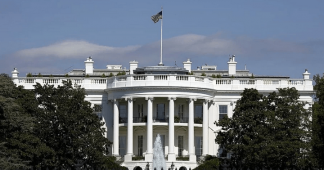If the exposé had gone public, Nixon might have been defeated and spent the next 20 years in prison—instead of winning re-election with the third largest electoral landslide in U.S. history
By Michael Steven Smith
Numerous American presidents have illegally co-opted public agencies and their staffs to carry out personal and often nefarious activities on their behalf. None of them was ever punished for doing so. Except (so far) Richard Nixon.
Nixon got his comeuppance when he sent his plumbers into the Watergate complex to steal documents that linked him to illegal Greek campaign contributions before they could derail his political career.
After months of stunning revelations in the media led by Woodward and Bernstein, Nixon was exposed and forced to resign. But Woodward and Bernstein, with all their research on the subject, never discovered the real reason Nixon engineered the Watergate burglary.
That is just one of the fascinating hidden stories told for the first time in a new “thriller” biography, The Greek Connection: The Life of Elias Demetracopoulos and the Untold Story of Watergate, by James H. Barron.
Barron describes Demetracopoulos as “a journalist, information broker, lobbyist, trusted advisor, suspected foreign agent, impassioned democracy and free speech advocate—a man with friends and sources spanning the political spectrum.”
Demetracopoulos (who died in 2016 at age 87) was a teenage Greek freedom fighter who survived torture and a Nazi death sentence during WWII, then emigrated to America to live a colorful and sometimes dangerous life as an investigative reporter who hobnobbed with the Washington, D.C., power elite in the evening, then skewered them like Athenian shish kabob in the morning edition.
He encouraged government officials who were shocked and disgusted by the corruption of their powerful bosses to blow the whistle on their crimes, which otherwise would remain hidden. One might almost call him Julian Assange avant la lettre.
But the price he had to pay was being targeted for destruction by Richard Nixon, who used the State Department, IRS, and CIA to harass his friends, smear his character, fabricate false evidence against him, and undermine his financial stability.
Yet for all its breathless excitement, the book by attorney and investigative reporter James H. Barron, is exhaustively researched and beautifully written.
As a teenager Elias was involved in the anti-fascist resistance in Athens during World War II.
At age 12 he joined a clandestine group and helped gather intelligence, facilitate propaganda, organize escape networks for allied operatives and prisoners of war, and engage in small acts of sabotage.
Barron writes that “he was quick witted and had a fierce work ethic and his fluency in English was equal to most others in the group.”
Elias was arrested and sentenced to death by the German fascists for the sabotages he had performed and for having kept weapons and a secret radio transmitter in his home.
He was imprisoned before his scheduled execution. Barron writes, “It is impossible to describe how the Greek patriot suffered. For two weeks, morning, noon, and evening, Elias underwent the most inhumane torture of the inquisition.
Yet, he did not utter a sound, did not even open his mouth. He groaned and bit his tongue, to cut it off if necessary. But until the last day when he was bound and taken to an auditorium for trial and sentenced to death Demetricopolous bore all torture bravely.”
To his torturer, a Greek collaborator with the Nazis, he said, “You can kill me, but you won’t get anything from me. One day you will pay for your crimes, traitor.” Then he spit in his face.
Because of the intervention of Archbishop Damaskinos, the spiritual leader of Athens and all of Greece, Elias’s life was spared as part of a Christmas goodwill package. He was but 15 years old.
He was transferred to an institution for the mentally ill and imprisoned there for nearly a year, finally being released in October 1944 when “the German occupiers, fearful of the advancing Red Army, withdrew from Athens and mainland Greece.”
After the war as a young man Elias wanted to be an investigative reporter, one who would be the first to uncover important stories. He got a job with Kathimerini, the conservative and most prestigious and influential newspaper in Greece. He was 21 years old. He became a top diplomatic reporter.
The fragile Greek democracy was overwhelmed by a military coup in 1967. The brutal junta was headed by Colonel Georgios Papadopoulos. Elias went into hiding for a month. He had no income and no job. The military saw the press as an extension of the government. The critical press then was, and is, in Donald Trump’s words, “an enemy of the people.“
Elias was a “zealous democrat who supported political freedom and human rights.” He believed there were four “essential elements of a functioning democracy: majority rule, with free and fair elections; respect for minority rights; independent judiciary; and a free press able to investigate and criticize the government. The new regime failed on all four accounts.”
Elias fled for his life seeking refuge in the U.S. Barron writes that he “thought the junta’s justification for intervention—allegedly to prevent an eminent communist takeover—deceitful, their overblown metaphor of Greek democracy as a sick patient needing medical intervention stupid, and their claim to be trustees of morality and Christianity fraudulent.”
Headquartering himself in Washington, D.C., Elias became one of the standout activists opposing the Greek military junta. The U.S. government attempted to have him deported back to Greece where he faced death. This as he helped build a broad-based coalition that animated world opinion and put pressure on political leaders to try to facilitate the junta’s downfall.
The CIA had helped back the coup that brought the Greek junta to power and the Nixon administration covertly supplied it with arms. It eluded an American arms embargo by listing “new” military equipment as “old,” undervaluing the equipment, and shipping it to the Colonels who led the juntas as “surplus.”

The junta, which lasted from 1967 to 1974, did terrible damage to Greek society.
Elias was afraid that, if he returned to Greece, he would be killed.
But in the U.S., he was subjected to government surveillance and wiretapping. Through his connections in Congress, he was able to get a green card which allowed him to stay and work and expose the sordid ties between the U.S. government and fascist Greek junta. This and other investigations led him to become persona non grata with both Greek and American officials.
Barron aptly quotes George Bernard Shaw from the preface of Heartbreak House: “Truth telling is not compatible with the defense of the realm.”
Barron describes the CIA’s attacks on Elias as an “institutional crusade.”
The latter regarded Elias “as a megalomaniac who may have suffered impairment of his mental faculties as a result of his imprisonment by the Germans during World War II for sabotage activities.”
The State Department for its part denied that Elias was even a journalist or that he worked for the newspaper Kathimerini. The CIA and the State Department carefully monitored his articles. They discouraged other newspapers from hiring him.
Demetracopolous did not have a comprehensive political ideology.
His experience with Stalinism made him an ardent anti-communist. Barron puts Elias on the political spectrum as a “center leftist,” writing that “he hated communism and fascism and preferred republicanism to monarchy. He believed in the promise of a well constructed constitutional framework to guide a flourishing representative democracy.”
When Nixon became president in 1969, he supported the Greek junta from which he took illegal campaign funds.
Tom Pappas, a Greek-American businessman from Boston, was Nixon’s co-chair of the financial committee that helped re-elect him. Pappas was in a word Nixon’s “bagman.” The Boston Globe described him as a modern-day “robber baron,” a salesman for the military junta looking for business opportunities in Greece.

Elias uncovered the truth: that American taxpayer dollars were funneled to the Greek version of the CIA, called the KYP, which were then sent back to the Nixon campaign.
He tried unsuccessfully to get the story out. The Democratic National Committee was headquartered in the Watergate complex. Elias believed that the burglary of the Watergate was an attempt by the burglars organized by the Republicans to get the Democratic Party’s files on the money transfer.
Had the story been released the scandal might have cost Nixon the election.

Because of Elias’s exposure of Tom Pappas, the State Department, the Internal Revenue Service, and the CIA built a phony case against him and made sure that congressmen, White House staffers, and political operatives got the most damning information they could supply. None of it was truthful.
Barron concludes that the FBI would have been in the front lines in bringing an actual case against Elias but instead recommended closing the investigation without taking any action.
Assange Avant La Lettre
Elias Demetracopoulos was a relentless champion of democracy and a free press and an extraordinary Greek patriot.
His example lives on in the work of the courageous truth-telling whistle-blowing Australian journalist and publisher Julian Assange, who embarrassed the U.S. government by publishing material on its war crimes in Iraq, Guantánamo, and Afghanistan. He figured out a way to receive information from whistleblowers and publish the information anonymously in order to protect them.
Like Elias, Assange was targeted by the CIA. Trump’s CIA Director, Mike Pompeo, called WikiLeaks “a hostile non-state intelligence agency” and suggested that Julian Assange be kidnapped from the Ecuadorian Embassy in London, where he had received political asylum, then rendered, and assassinated.
Like Elias, Julian was looked upon by the U.S. government as, in Orwellian terms, “an enemy of the people.” He is presently being held in solitary confinement at London’s infamous Belmarsh prison awaiting a decision of an appellate court on the American request to have him extradited so that he could be tried for espionage in a court in Virginia.
James H Barron’s The Greek Connection gives us the historical understanding and inspiration to appreciate Demetracopoulos’s and Assange’s courageous journalism and to step up and support those who practice truth telling in these terrible times.
Published at covertactionmagazine.com
We remind our readers that publication of articles on our site does not mean that we agree with what is written. Our policy is to publish anything which we consider of interest, so as to assist our readers in forming their opinions. Sometimes we even publish articles with which we totally disagree, since we believe it is important for our readers to be informed on as wide a spectrum of views as possible.











